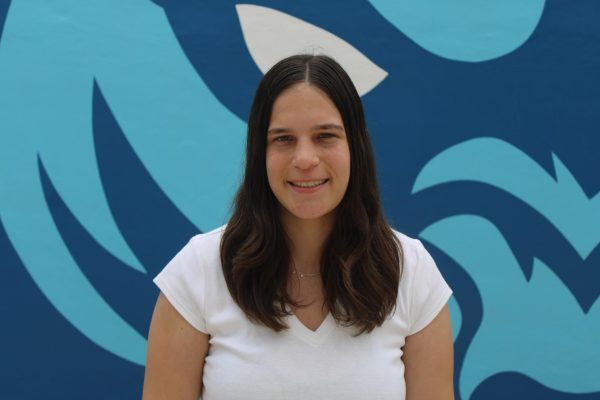Since the overturning of Roe v. Wade in 2022, a ruling that originally made abortions a constitutional right for women, the battle for women’s reproductive rights has become a pivotal issue. In Florida, abortion bans have only gotten stricter since the overturning. In April, Gov. Ron DeSantis signed a bill into law that bans abortions after six weeks.
Women and pro-choice groups across Florida. have not let this ban discourage their fight for freedom. Women have not stopped advocating for their reproductive rights; they protest, petition and speak out.
“It is not fair. And I feel like one of the biggest issues that I have with [limitations of abortion] is that it takes away women’s bodily autonomy and their freedom to choose. Because religious choices aside, and whatever moral compass some people have, as a democratic country, the only way that we are able to stay democratic is by having certain rights that we get to decide what we do with our bodies. And I just feel like abortion is just one of those things that a woman should be able to decide,” senior and Women of Tomorrow Club President Condoleezza Alexis said.
In addition, through the Women of Tomorrow Club meetings, Alexis has been able to invite speakers to talk about their personal experiences and members can freely discuss the topic.
“Sometimes we have guest speakers who come and talk about their experiences. And us girls, we have conversations with each other where we discuss different topics,” Alexis said.
In addition to school clubs advocating for reproductive rights, state-wide nonprofit groups such as the Florida Women’s Freedom Coalition led by the Executive Director and Village of Pinecrest Vice Mayor, Anna Hochkammer, have also stepped up against this challenge and are trying to change Florida’s law through a state-wide referendum.
“We are part of the coordinated campaign to get an amendment to the Florida Constitution on the ballot in Florida, in November 2024. So there’s a separate pack, called the Floridians Protecting Freedom Pack, which is actually the official sponsor of the ballot initiative. And we work with them primarily right now in a fundraising capacity to raise money to help fund the ballot initiative and pay all of the management and operational and legal expenses associated with the ballot initiative,” Hochkammer said.
For a referendum to be initiated and put on the ballot, the necessary paperwork must be filed by an official sponsor, and then collect 891,000 petitions from at least 14 of the 28 congressional districts which has to be 8% of the electorate that was in the last election and 8% of the state overall. For the FWFC, the goal is to get their referendum on the ballot in 2024.
“The petitions all need to be certified and turned in by December 31, 2023. That’s when they need to be submitted to the state attorney’s office and to the state of elections offices, then I believe the Supreme Court of Florida is going to have 30 days to review and certify to make sure that all of the petitions are valid, and that they weren’t filled out incorrectly. And then once they certify it, all 891,000 of them, then they’re going it’ll be officially on the 2024 ballot in November,” Finance Director of FWFC Allie Owen said.
The referendum idea began after different coalition groups united, including Planned Parenthood and Florida American Civil Liberties Union, and started to test how impactful the referendum would be if passed.
“It happened there was a coalition of people that came together that included Planned Parenthood and its affiliates in Florida, ACLU Florida rising. The SEIU and people who had worked on successful previous ballot referendums in Florida started testing the ballot language and they did extensive polling across the state. They tested it many times the language is actually going to be on the ballot many times and every single time that it was tested, the poll that was released earlier this year, concluded that 70% of Floridians support a constitutional amendment that guarantees that no law shall be passed that interferes with access to abortion,” Owen said.
This year, the FWFC is focused on prioritizing all the necessary funds and spreading awareness of their initiative.
“We are very pragmatically focused on raising money to pay for the paid petition portion of the abortion referendum of the ballot initiative to get the number of petitions certified and turned in that we’re going to need to in order to get this actually on the ballot. Because it has such wide support in Florida we need to have a coalition that reflects just how many multitudes of people support this issue and agree that the government has no place to interfere in our right to health care access. So we’re getting support from a wide variety of people who are Democrats and you know, the people who usually show up to write checks for local races and federal races and national races and we’re talking to big donors across the country that are seeing just how much Floridians want this. But we’re also very focused on spreading awareness and raising support from Republicans and NPAs as well,” Owen said.
Even before the overturning of Roe v. Wade, Hochkammer has always been petitioning for abortion rights.
“I was born in 1973, which is the year that Roe v. Wade was written. I had a mother, who grew up and spent her high school, college, and early marriage years, living in a country where she didn’t have bodily autonomy. Let’s remember that into the 1960s and 70s, women often in many states could not be prescribed birth control, without the permission of their spouses, and they couldn’t get a credit card. Unless they were sponsored by their spouse, they didn’t have access to credit. They couldn’t exercise what we consider to be basic civil rights. And the capacity to control one’s self and one’s body is integral to the capacity for women to participate fully as complete citizens in American society. So by the early 90s, when I started college, it was already apparent that there were people out there who wanted to take that capacity to participate in civil society away from young women. And, I always knew that that was inappropriate. And that was something that I was going to fight against, with my time with my name, my face and with my presence with my vote,” Hochkammer said.
As the issue of abortion rights becomes more pressing across Florida, women and other advocacy groups have become even more determined to fight against this issue.








